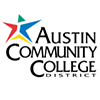Austin Community College District is a public community college system located in Austin, Texas, United States. Here is a detailed introduction to it:
History
In the 1960s, Austin residents and leaders began discussing the possibility of establishing a community college, but in 1963, 1965, and 1968, the relevant proposals were rejected by voters.
In 1972, an alternative proposal to allow the Austin Independent School District to operate and fund the new college was approved by a majority of voters, and Austin Community College was established and began enrolling students on September 17, 1973, with only one campus and 1,726 students.
As the number of students grew, in 1981, the school administration asked Travis County voters to transform it into a county-wide public college, giving it its own taxing power and allowing it to issue bonds to fund facility expansion and renovation. Although it was initially rejected, a similar measure was passed in 1986, and the college has since separated from the Austin Independent School District and established its own management board and taxing power.
School size
Number of students: Serving more than 70,000 students each year, it is one of the largest community colleges in the United States, including students participating in credit courses, adult education and continuing education programs.
Campus distribution: The college has 11 campuses in Austin and the surrounding areas, including Rio Grande Campus, Riverside Campus, Northridge Campus, Pinnacle Campus, Cypress Creek Campus, and more. Campus, Eastview Campus, South Austin Campus, Round Rock Campus, Elgin Campus, Highland Campus, Hays Campus and San Gabriel Campus.
Professional Courses
Degrees and Certificates: Associate degree and vocational/technical certificate programs covering approximately 100 areas of study, these courses are designed to help students obtain employment qualifications or prepare for transfer to four-year institutions.
A wide variety of majors: majors cover a variety of fields such as art, humanities, science, and technology, including anthropology, art, creation, dance, drama, economics, English, foreign language studies, geographic information systems, geography, government, history, journalism, music, philosophy, computer science, nursing, advanced manufacturing, software development, network security, criminal justice, cooking, hotel management, tourism, etc.
Teaching features
High flexibility: Provide flexible and diverse learning methods, including face-to-face courses, online courses, and hybrid courses. Students can choose a suitable learning mode according to their own time and learning style, which is convenient for working people, adult students, etc. to balance the relationship between learning and work and life.
Practical teaching: Focus on the combination of practice and theory. Through internships, experiments, projects, etc., students can master professional knowledge and skills in actual operations, improve their ability to solve practical problems, and be fully prepared for smooth entry into the workplace after graduation.
Small class teaching: A small class teaching mode is adopted, and the ratio of students to teachers is relatively reasonable, usually 18:1 This enables teachers to better focus on the learning progress of each student and provide personalized guidance and support to students.
Faculty
The college has a strong faculty, and many teachers have rich practical experience in their respective fields. They not only have solid professional knowledge, but also can integrate cases and experience from actual work into teaching, providing students with more practical and forward-looking educational guidance.
Campus Life
Student Organizations and Clubs: There are a wealth of extracurricular activities and organizations on campus, encouraging students to participate in various clubs, cultural activities and sports, such as music clubs, art clubs, sports associations, etc., creating an active campus cultural atmosphere, helping students expand interpersonal relationships, and cultivate teamwork spirit and leadership.
Student Support Services: Provide students with comprehensive support services, including academic counseling, career counseling, mental health counseling, free food pantry etc., to help students solve various problems encountered in learning and life, and ensure that students can successfully complete their studies.
School Honors and Recognition
Accredited by the Southern Association of Colleges and Schools Commission on Colleges, it can award associate and bachelor's degrees.
Recognized as a good way for higher education and training, a catalyst for social property, economic development and personal enrichment, it has been recognized regionally, statefully, nationally and internationally for innovation and academic excellence.
It was once named one of the best places to work by Forbes magazine in 2016, one of the top 20 colleges in the United States, one of the top 25 community colleges preferred by Hispanic students, one of the top 10 producers of associate degrees in the United States, and one of the 10 "Campus Centers for Truth, Racial Healing and Transformation" in the country.
-

Harvard University
-

Massachusetts Institute of Technology
-

South University
-

University of West Georgia
-

Stanford University
-

Northwest Nazarene University
-

Hawaii Pacific University
-

Shorter University
-

Nova Southeastern University
-

Saint Leo University
-

Mesoamerican University
-

Istmo University
-

Mariano Galvez University of Guatemala
-

Regional University of Guatemala
-

Galileo University
-

Francisco Marroquín University
-

Rafael Landívar University
-

University of the Valley of Guatemala
-

University of San Carlos of Guatemala
-

Technological Institute of Tlaxcala Plateau
-

Golfo University
-

Technological University of South Sonora
-

Technological University of Huejotzingo
-

Tizimín Institute of Technology
-

Chilpancingo Institute of Technology

